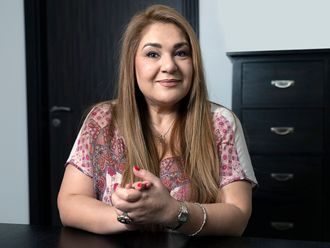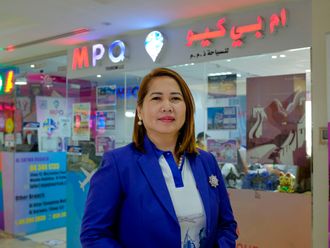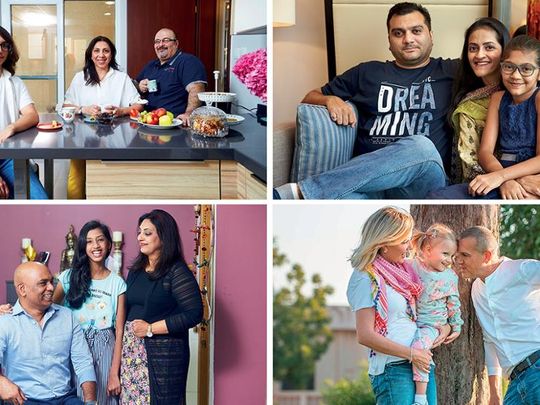
Alifiya Sherawala and her nine-year-old daughter Nisreen were waiting for their turn at the long supermarket queue. Tired and bored, Nisreen, stuck up a conversation with two other kids waiting along with her. Soon, the three of them were running between the line of customers, giggling with joy, while playing a game of hide and seek. By the time their parents paid their bills, the kids had already exchanged phone numbers and made plans to meet in the neighbourhood park another evening. ‘Nisreen is a chatterbox and makes friends easily,’ says Alifiya, a stay-at-home mom from India who lives with her husband Aliasgar in Sharjah’s Al Nahda.
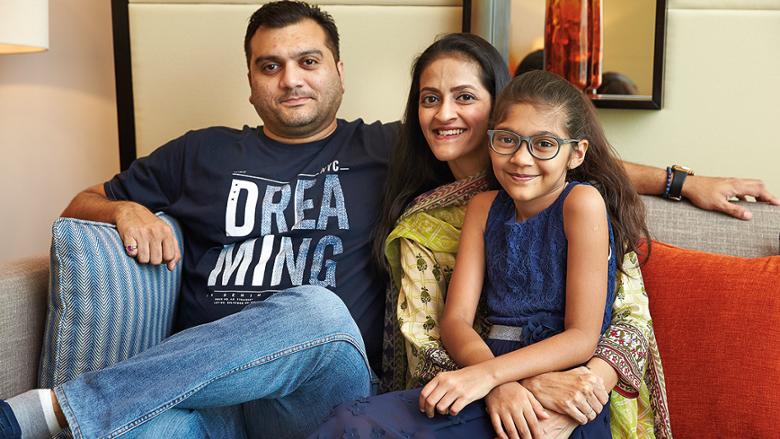
The Sherawalas are one of the many single children families in the UAE, part of a tribe of parents opting to have only one offspring. ‘At home there is never a dull moment with Nisreen around. We spend a lot of time together playing board games, painting and baking. She is independent; mingles well in social gatherings and can take charge of entertaining herself,’ adds Alifiya.
By choice or dictated by circumstances parents’ decision to have only one child is often subjected to conventional stereotypical views that their kid will be lonely, socially-inept, oversensitive, spoilt and pampered. But one look at Nisreen and a conversation with her mom Alifiya is enough to debunk these long-standing archaic opinions. ‘One or many is irrelevant if you provide your kids with the right nurturing atmosphere. I feel single kids are more open to exploring and making friends. They take charge of keeping themselves busy. And it is seen that in a group while siblings tend to stick amongst people they know, the single children are open to interacting with others,’ says Alifiya.
The typecasting of the only child really began a long time ago. A study conducted by 19th century psychologist Eugene W Bohannon had declared that undivided attention from their parents turned single kids to become hyper-sensitive, precocious and inconsiderate. He wrote that as a result of constant adult company and being privy to information unbefitting their tender years, only children exhibited a ‘peculiar’ mentality, language, manner and conduct, imitating the adults around them while remaining immature in other ways. Another well-known American child psychologist G Stanley Hall even went to the extent of saying that being an only child is a disease in itself.
Although time and again newer studies have proven the labels stamped on only kids are wrong, society’s skewed perceptions about them persist. Parents are often asked – when are you going to give your child a sibling? Isn’t your child lonely at home? Your child must be like a little emperor who gets everything he or she wants?
British PR consultant and Dubai resident Kelly Harvarde has heard all such stereotypical statements all her life. Raised in Jersey, in UK’s Channel Islands she was the only child of her parents. Thanks to her very positive growing up experience when she became a parent she decided to have an only too. ‘I am so tired of the lazy and inaccurate stereotypes about only children – I have heard them all my life as an only and I regularly hear them rolled out now that I have an only too,’ says Kelly. Her daughter Aya is almost five.
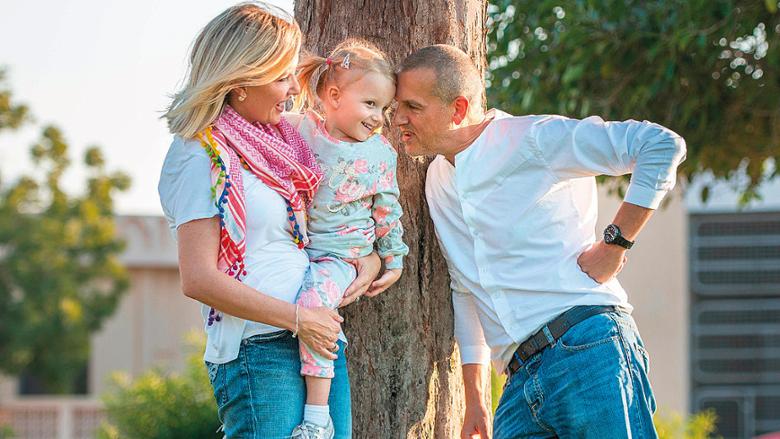
Kelly and her photographer husband Alex Jeffries, plan to have no more children. ‘My very positive experience of being an only kid has certainly influenced the decision. I loved it and feel it brought only positives and strengths to my life and character.’
While Kelly was sure of having just one child, many other parents take the decision based on numerous reasons. For some it is financial constraints, others fertility issues, a late marriage or lack of childcare support.
Prabhat and Ritu Sisodia, an Indian couple and Bur Dubai residents had initially not planned to have an only one. But an unstable career and financial constraints convinced them to forego having a second child after the birth of their daughter Anvesha now 11 years old.
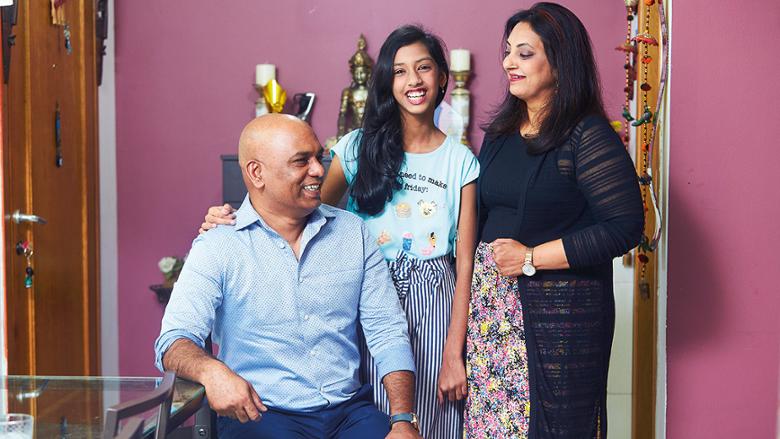
‘When our daughter was a toddler, we both were working and she was in a day care. But it proved tough, especially to take leave when she was sick. Eventually my wife Ritu left her job and from a double income family we became a single income. This stressed our finances and we felt it best to put all our resources together to bring up our daughter,’ says Prabhat.
Both Arwa Abdelhamid, a Jordanian-American and her Emirati husband Anees Al Harris grew up in large families and would have ideally wanted two kids – a boy and a girl. But the birth of their son Adam gave them a reality check. ‘I was struggling with a full-time job as a teacher, running a household and taking care of the baby. Having Adam at a daycare centre while I was at work was a lifesaver, but the minute I was home, he consumed all my energy. We decided to wait a few years before having another child, but we waited too long and now it is too late,’ explains Arwa, whose son Adam is 13 years old.
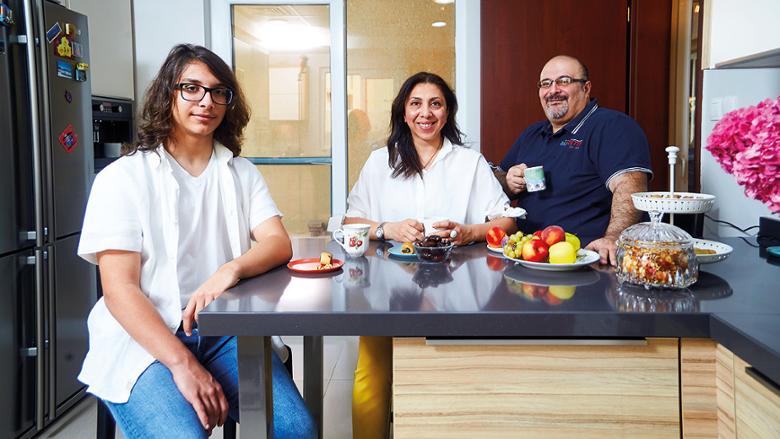
‘When recently asked whether he would have liked a brother or sister, Adam admitted that he wouldn’t want to have to share us (his parents) with anyone. However, after giving it more thought, he said it might be cool to have a sibling to talk to, especially if he or she were older. The fact that he doesn’t have any, though, is something he has accepted early on in his life and he does not wish for the situation to change.’
Whatever might have been their reasons for bearing only one they all agree that the advantages outweigh the few disadvantages there might be. ‘It’s definitely easier on the finances; since cost of education is high. We can give quality time to our child and at the end of the day there is only one young individual to handle while planning an outing, in sickness or on holidays,’ points out Ritu.
Joanne Jewell, parenting expert and founder of Mindful Parenting, Dubai, says: ‘We all have a certain amount of time in a day, so if you are parenting one child it would mean more time to connect with them and to focus on their needs and encourage their interests. However, this would be a choice that the parent makes. Just having more time does not necessarily mean it is used in this way.’
The key to raising a single kid really lies in the parenting style as there are no similar individuals and single shot formulae that suit all families.
There is evidence to support that children with, or without siblings, are indistinguishable in their personality traits. One of the most talked about research about only children was conducted by Professor Toni Falbo, from the University of Texas at Austin.
An only child herself and the mother of one, Falbo began investigating the only-child experience in the 1970s, both in the US and in China (a country that followed one-child policy until a few years ago). She and her colleague Denise Polit conducted a meta-analysis of 115 studies of only children from 1925 onwards that considered developmental outcomes of adjustment, character, sociability, achievement and intelligence. The studies found that single kids are no different from kids with siblings. In fact they scored higher in self-esteem and achievement.
In another more recent study on more than 250 college-age students by Jiang Qiu, a professor of psychology at Southwest University in Chongqing, China, it was found that only children were more flexible and creative in their thinking.
‘All children are unique. Our job as parents is to respect this uniqueness and ensure that we are meeting our children’s need. This is what determines how a child develops rather than their birth order or whether they are a single child or not. I work with hundreds of families in the UAE and the main observation I can make about ‘single’ children is more about the way adults tend to interact with them rather than with the child themselves,’ says Joanne.
The so-called only child syndrome that makes the kid pampered, odd and lonely can have a reverse effect when seen from another perspective. Pampered becomes privileged, odd turns creative and lonely is independent. ‘A privilege is something you appreciate and do not take for granted. Adam understands that he is loved unconditionally but anything else that comes his way is earned and deserved,’ says Arwa. Little Aya, too is, encouraged to be grateful for the privileges she has in life. ‘The only way our daughter is truly spoilt is with our time and our attention,’ says Kelly.
To help their onlies spend time with other children of their age, parents make extra efforts to increase social interaction, plan play dates and be part of extended family events. On weekdays, for instance, Nisreen is surrounded by kids as she attends school in the daytime and on weekends the family plans outings and includes her in social gatherings.
‘Adam may not have any siblings,’ says Arwa, ‘but he has friends in school and an extended family that includes grandparents, aunts, uncles and cousins. Together, along with these people we have created a community in which he can interact and develop relationships with individuals other than his parents.’
The downside of some of these supervised interactions, some argue, is that the onlies do not get to deal with real-life situations of having to get along with a rowdy sibling or the ability to gauge the moods of other kids around them. There is also a tendency among parents to over-parent and helicopter-parent.
‘As they get older, kids benefit from having more freedom to do things themselves. Siblings provide a useful way to test and learn social skills on each other and this could be missing in a family without more than one kid,’ says Joanne. ‘However, I have seen many families successfully provide this type of relationship through close family friends or extended family meetings.’
Not having sibling also means no guaranteed constant companionship. But like all human relationships fallouts with close family members is not uncommon. ‘I have seen people with siblings who are great friends and those who are not. Some of them have little or no contact with each other. Siblings don’t come with a guarantee of lifelong friendship – far from it,’ explains Kelly.
Single, double or triple, there is no right family size. The best home is the one in which the child feels loved and secure. ‘In the end it’s just a concept that is fed to us. There is no ‘one shoe that fits all’. Somehow, having one child was best suited to us as parents and as a family,’ Alifiya sums it well.






